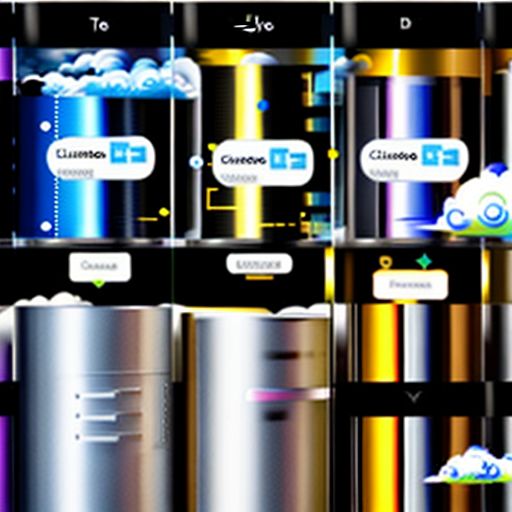
Imagine a world where you can access all your files and software from any device, anywhere, without the hassle of maintaining your own servers. This, in essence, is the promise of cloud computing. But what exactly is cloud computing, and why is everyone talking about it?
This comprehensive guide will delve into the world of cloud computing, exploring its definition, benefits, risks, and answer some of the most frequently asked questions.
What is Cloud Computing?
 Cloud Computing Concept
Cloud Computing Concept
Cloud computing is the delivery of computing services – including servers, storage, databases, networking, software, analytics, and intelligence – over the Internet (“the cloud”). Instead of owning and maintaining physical data centers and servers, you can access these services, on an as-needed basis, from a cloud provider like Amazon Web Services (AWS), Microsoft Azure, or Google Cloud Platform (GCP).
Key Characteristics of Cloud Computing:
- On-demand self-service: You can access computing resources whenever you need them, without human interaction with the service provider.
- Broad network access: Resources are available over the network and accessed through various client devices (e.g., laptops, smartphones, tablets).
- Resource pooling: The provider’s computing resources are pooled to serve multiple clients simultaneously, with different resources dynamically assigned according to consumer demand.
- Rapid elasticity: Resources can be provisioned, increased, or decreased quickly, allowing for flexibility and scalability.
- Measured service: Resource usage is monitored, controlled, and reported, providing transparency for both the provider and the consumer.
Why is Cloud Computing Important?
Cloud computing has become an integral part of businesses and individuals alike. Here’s why:
- Cost-effectiveness: Cloud computing eliminates the upfront costs of purchasing and maintaining hardware and software. You only pay for the resources you use.
- Scalability: Easily scale your computing resources up or down based on your needs, ensuring optimal performance without investing in physical infrastructure.
- Flexibility: Access your applications and data from anywhere with an internet connection, providing greater flexibility and mobility.
- Increased Productivity: Cloud computing frees up your IT team to focus on other strategic tasks by reducing the time spent on infrastructure management.
- Enhanced Security: Cloud providers offer robust security measures, often more advanced than what individual businesses can implement.
Types of Cloud Computing Services:
Cloud computing services can be categorized into three main models:
1. Infrastructure as a Service (IaaS)
IaaS provides you with the basic building blocks for cloud IT. You rent IT infrastructure – servers and virtual machines (VMs), storage, networks, operating systems – from a cloud provider on a pay-as-you-go basis.
2. Platform as a Service (PaaS)
PaaS provides an on-demand environment for developing, testing, delivering, and managing software applications. Developers can build and deploy applications without worrying about managing the underlying infrastructure.
3. Software as a Service (SaaS)
SaaS delivers software applications over the Internet on a subscription basis. Users can access and use the software from any device with an internet connection.
Is Cloud Computing Right For You?
While cloud computing offers numerous benefits, it’s essential to consider your specific needs and requirements. Factors to consider include:
- Security concerns: Assess the security measures offered by the cloud provider and ensure they meet your data sensitivity requirements.
- Vendor lock-in: Evaluate the ease of migrating your applications and data to another provider if needed.
- Internet dependency: Cloud computing relies on a stable internet connection. Consider backup options in case of connectivity issues.
Conclusion
Cloud computing has revolutionized how we store, access, and manage data and applications. Its flexibility, scalability, and cost-effectiveness make it an attractive solution for businesses of all sizes. By understanding the different aspects of cloud computing, you can make informed decisions to leverage its power for your specific needs.
Do you have any other questions about cloud computing? Share your thoughts in the comments below!

